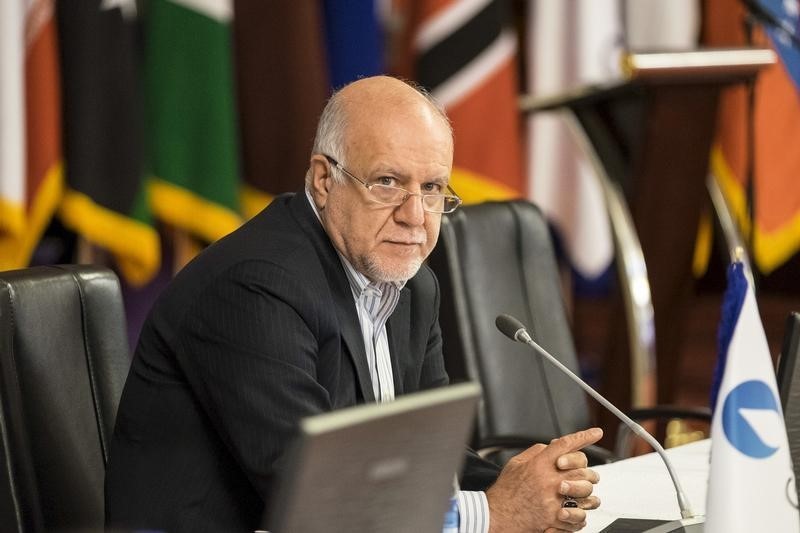Investing.com - Oil prices pushed lower in volatile trade on Tuesday, following bearish comments from Iran’s oil minister Bijan Zanganeh, who called last week’s output freeze deal between Saudi Arabia and Russia “ridiculous”.
Last week’s proposal by Saudi Arabia, Russia, Venezuela and Qatar for oil producers to freeze output at January levels puts “unrealistic demands” on Iran, Zanganeh said according to Iranian news agency Shana.
On the ICE Futures Exchange in London, Brent oil for April delivery lost 60 cents, or 1.73%, to trade at $34.09 a barrel by 14:40GMT, or 9:40AM ET.
London-traded Brent futures were higher earlier in the session after Saudi Arabia’s Oil Ministry said it planned to discuss OPEC and non-OPEC co-operation with Nigeria, again raising the possibility of a coordinated cut in crude output.
Saudi Oil Minister Ali al-Naimi is scheduled to speak at the CERAWeek energy conference in Houston later in the day. His remarks will follow comments from OPEC Secretary-General Abdullah El-Badri, who said that oil producers could "take other steps" to tackle the oil glut if a proposed supply freeze is successful.
Top oil producers Russia and Saudi Arabia agreed to freeze oil production at January levels last week, provided other oil exporters joined in. But Iran stopped short of committing to the proposal, casting doubts over whether the freeze will happen.
Elsewhere, crude oil for April delivery on the New York Mercantile Exchange shed 78 cents, or 2.34%, to trade at $32.61 a barrel.
Market players looked ahead to fresh weekly information on U.S. stockpiles of crude and refined products to gauge the strength of demand in the world’s largest oil consumer.
The American Petroleum Institute will release its inventories report later in the day, while Wednesday’s government report could show crude stockpiles rose by 3.2 million barrels in the week ended February 19.
Oil futures are down nearly 70% since the summer of 2014. Global crude production is outpacing demand following a boom in U.S. shale oil and after a decision by OPEC last year not to cut production in order to defend market share.
Meanwhile, Brent's premium to the West Texas Intermediate crude contract stood at $1.48 a barrel, compared to a gap of $1.30 by close of trade on Monday.
